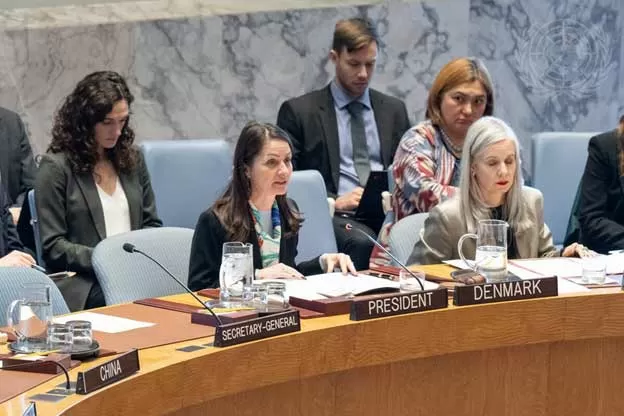Since the Taliban’s return to power in Afghanistan nearly four years ago, the situation for women in the country has taken a turn for the worse. According to recent reports, over 14 million women have been affected by the Taliban’s policies, which have led to a significant decline in their rights and freedoms. This has not only exacerbated the already dire humanitarian crisis in Afghanistan, but it has also had a devastating impact on the lives of millions of women.
One of the main issues facing women in Afghanistan today is heightened gender inequality. Under the Taliban’s rule, women are not allowed to work, receive an education, or leave their homes without a male guardian. This has severely limited their ability to support themselves and their families, leaving them vulnerable to poverty and exploitation. In addition, women are subjected to strict dress codes and face severe punishment for not adhering to them. This has not only stripped them of their freedom of expression but has also instilled fear and oppression in their daily lives.
The impact of this gender inequality has been felt across all aspects of Afghan society. The ongoing conflict in the country has resulted in widespread displacement, leaving many women and their families without a home or a means of survival. With limited economic opportunities, many women are forced into early marriages or even worse, sold into sexual slavery. This has only added to the already dire situation in Afghanistan, where women and children are the most vulnerable in times of crisis.
Moreover, the effects of climate change and food insecurity have also taken a toll on women in Afghanistan. As resources become scarce and natural disasters become more frequent, women are often the ones who bear the brunt of these challenges. They are responsible for providing food, water, and shelter for their families, but with limited resources and opportunities, this becomes an insurmountable task. This has not only affected their physical well-being but has also taken a toll on their mental health, as they struggle to provide for their loved ones.
To make matters worse, the recent cuts in humanitarian funding have only added to the suffering of women in Afghanistan. With a significant decrease in aid, many organizations have been forced to scale back their operations, leaving millions of women without access to crucial services such as healthcare and education. This has not only hindered their ability to rebuild their lives but has also left them without any hope for a better future.
It is imperative that immediate action is taken to address the dire situation facing women in Afghanistan. The international community must come together to provide the necessary support and resources to ensure the safety and well-being of women in the country. This includes not only addressing the immediate needs of women but also working towards long-term solutions that promote gender equality and empower women to be active participants in their society.
In addition, it is crucial that the Taliban’s policies towards women are challenged and reformed. Women must be given the right to education, employment, and the freedom to make their own choices. This will not only improve their own lives but will also contribute to the overall development and stability of Afghanistan.
Despite the challenges and setbacks, there is still hope for a better future for women in Afghanistan. Many organizations and individuals are working tirelessly to support and empower women in the country. Their resilience and determination to create a better tomorrow for themselves and their families is truly inspiring. It is our responsibility to stand in solidarity with them and support their efforts in any way we can.
In conclusion, the situation for women in Afghanistan has become increasingly dire since the Taliban’s return to power. The heightened gender inequality, coupled with the ongoing humanitarian crisis, has had a devastating impact on the lives of millions of women. It is our duty to take action and stand up for their rights, to ensure that they are not forgotten or left behind. Together, we can create a brighter and more equal future for the women of Afghanistan.



